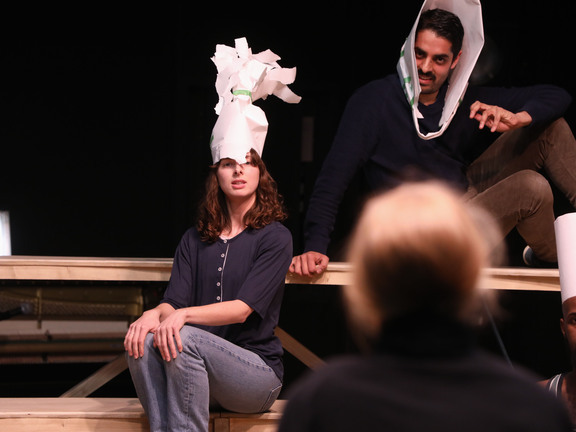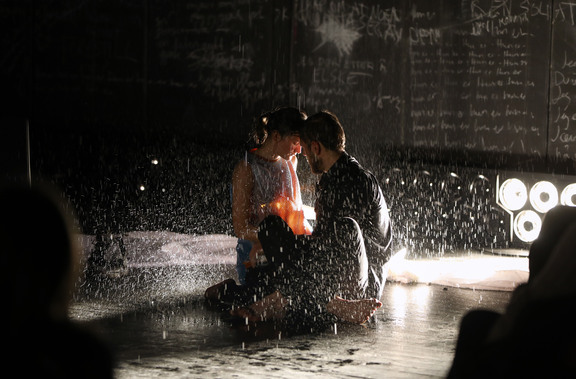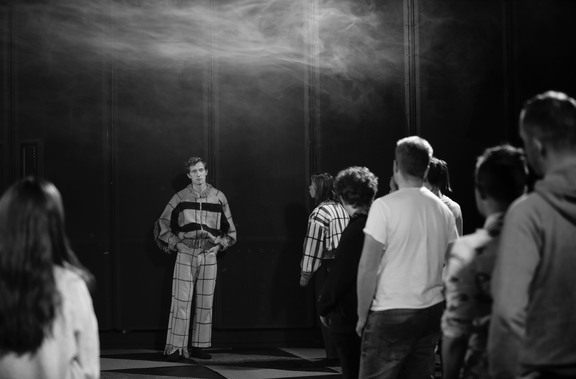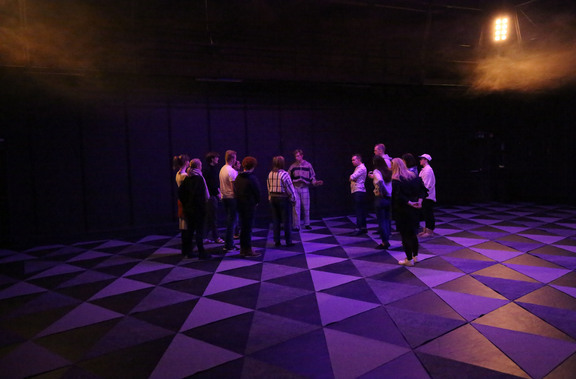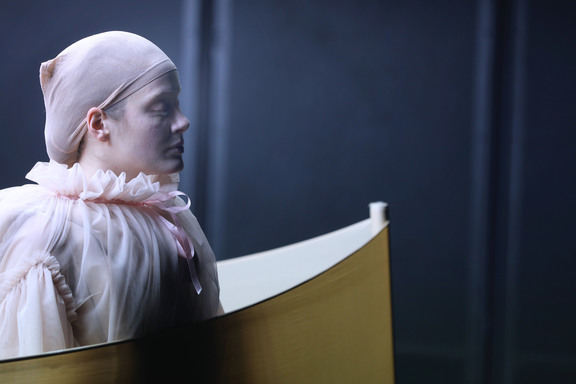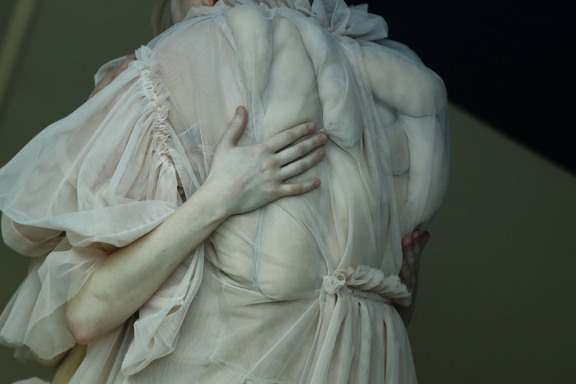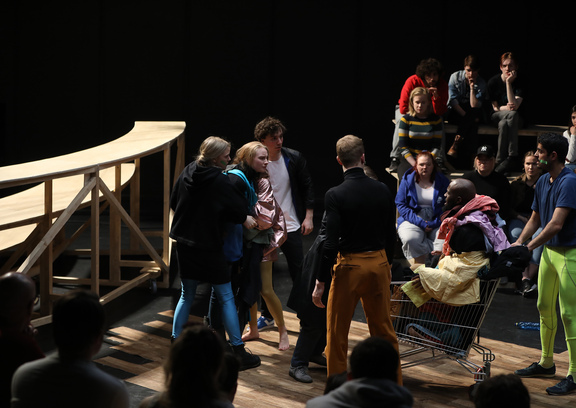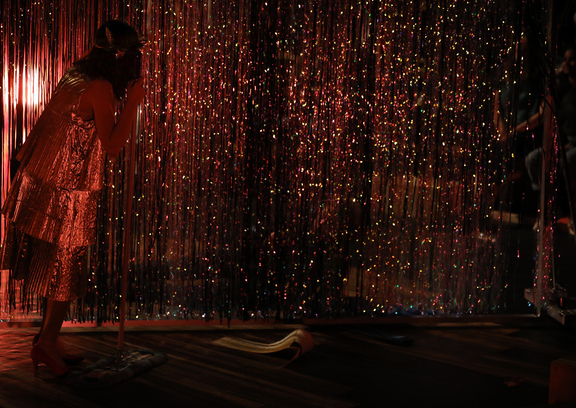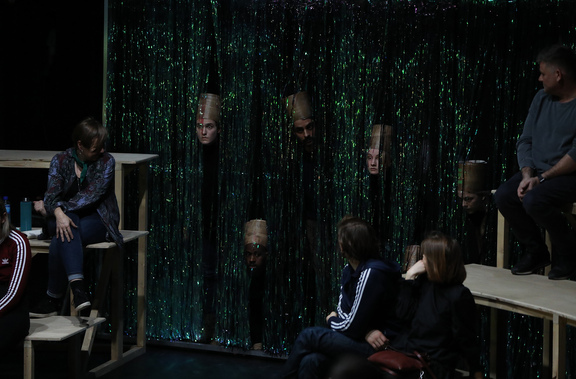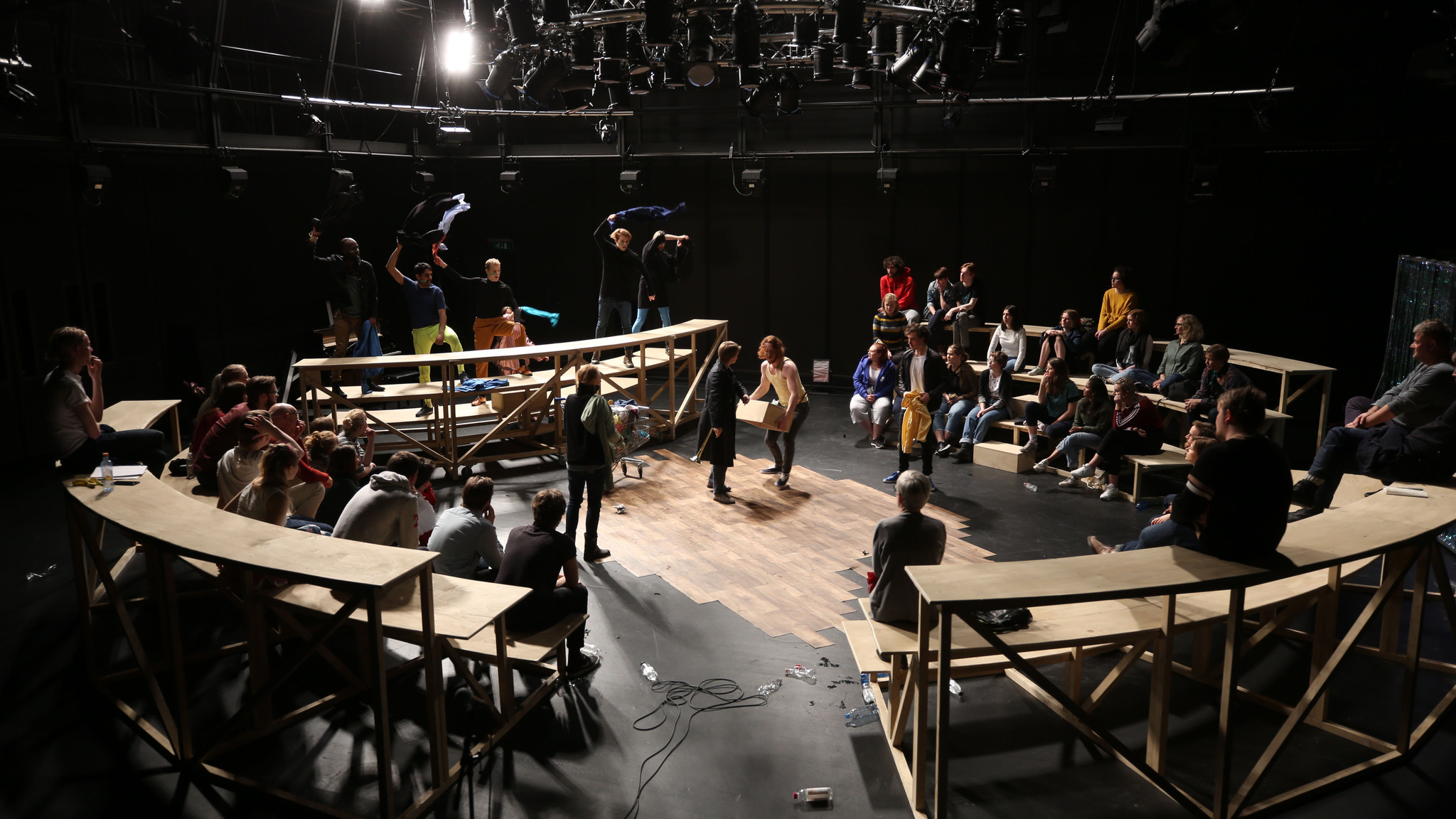

Bachelor programme in Directing
Students learn to work as independent creative artists of a high calibre, gaining experience with a rich array of methods to develop their own expressive abilities. Theatre is a collaborative medium, so students also learn to work both as part of an ensemble and in partnership with professionals from other artistic and theatrical fields. The course is grounded in the principles established by the Russian theatre director and educator Stanislavski, although students are also introduced to other approaches and methods in the field of directing.
In course work, students work together as both actors and directors. They also collaborate with other students at KHiO, and with people from other academic and non-academic fields, on directorial exercises and productions of increasing scope and complexity.
In addition to the primary focus on directing, the Bachelor’s course also teaches acting techniques, theatre and art theory, dramaturgy, dramatisation, production and the technical aspects of theatre.
Programme description
Programme description not available in English. Language of instruction is Norwegian.
Course structure
| Course code | Course name | ECTS Credits |
|---|---|---|
| RE101 | Foundation | 18 |
| RE102 | Action and Scenic Embodiment | 18 |
| RE103 | Concept 1 | 6 |
| RE104 | Composition 1 | 8 |
| RE105 | Dramaturgy and Theory 1 | 10 |
| Course code | Course name | ECTS Credits |
|---|---|---|
| RE201 | Visual Concepts | 8 |
| RE202 | Prose | 12 |
| RE203 | Concept 2 | 4 |
| RE204 | Composition 2 | 8 |
| RE205 | Dramaturgy and Theory 2 | 10 |
| RE206 | Staging Dramatic Text | 18 |
| Course code | Course name | ECTS Credits |
|---|---|---|
| RE301 | Prose | 15 |
| RE302 | Spesific Genre | 20 |
| RE303 | Concept 3 | 5 |
| RE304 | Composition 3 | 10 |
| RE305 | Dramaturgy and Theory 3 | 10 |
Exchange
These exchange agreements are valid for bachelor programme in directing:
Admissions
The application deadline is February 01, 2026 23:59
About the Academy of Theatre
Since its founding in 1953, the Academy of Theatre has been Norway’s leading educational institution for the acting professions. The Academy offers a three-year Bachelor’s course for actors and directors and a two-year Master’s course in theatre, specialising in acting, direction, stage writing and stage design. The department also offers a practice-oriented teacher training course (PPU) for drama teachers.
The Academy embraces both traditional and experimental techniques. Our primary goal is to help our students develop all the skills they need for a career in theatre, uniting the traditional craft that has long underpinned our great theatrical institutions with the best of the more experimental and creative techniques coming from the independent field.
The Academy offers not only a valuable vocational education, but also a first-class arts education. We aim to encourage and develop our students’ artistic abilities, giving the theatrical world not only the supply of new talent it craves, but perhaps also some fresh perspectives it doesn’t yet know that it needs.
